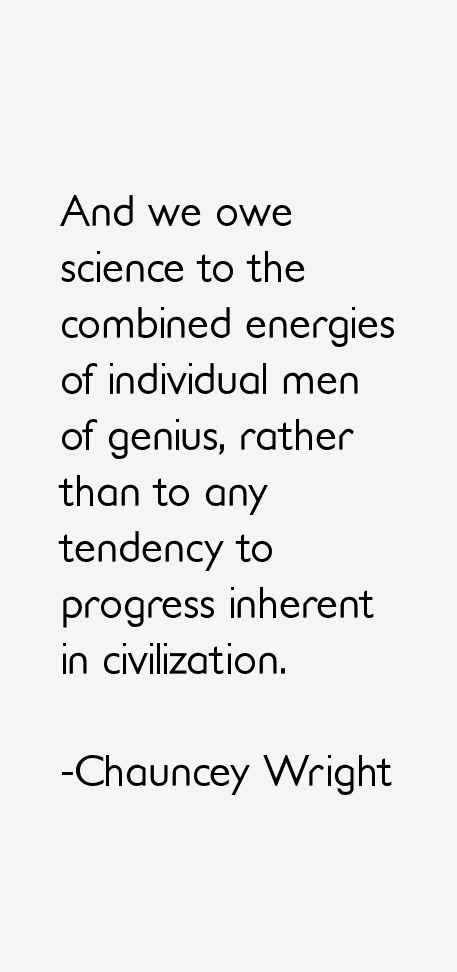Chauncey Wright Quotes & Sayings
11 most famous Chauncey Wright quotes and sayings (philosopher). These are the first 10 quotes we have.

“The accidental causes of science are only accidents relatively to the intelligence of a man.”

“The questions of philosophy proper are human desires and fears and aspirations - human emotions - taking an intellectual form.”

“Let one persuade many, and he becomes confirmed and convinced, and cares for no better evidence.”
“All observers not laboring under hallucinations of the senses are agreed, or can be made to agree, about facts of sensible experience, through evidence toward which the intellect is merely passive, and over which the individual will and character have no control.”

“And we owe science to the combined energies of individual men of genius, rather than to any tendency to progress inherent in civilization.”

“We receive the truths of science by compulsion. Nothing but ignorance is able to resist them.”
“By what criterion... can we distinguish among the numberless effects, that are also causes, and among the causes that may, for aught we can know, be also effects, - how can we distinguish which are the means and which are the ends?”
“If they are, then the only ultimate truths are the particulars of concrete experience, and no postulate or general assumption is inherent in science until its proceedings become systematic, or the truths already reached give direction to further research.”
“Natural Selection never made it come to pass, as a habit of nature, that an unsupported stone should move downwards rather than upwards. It applies to no part of inorganic nature, and is very limited even in the phenomena of organic life.”
“Such evidence is not the only kind which produces belief; though positivism maintains that it is the only kind which ought to produce so high a degree of confidence as all minds have or can be made to have through their agreements.”
Chauncey Wright Quotes Rating
No Ratings Yet
Leave A Comment
























